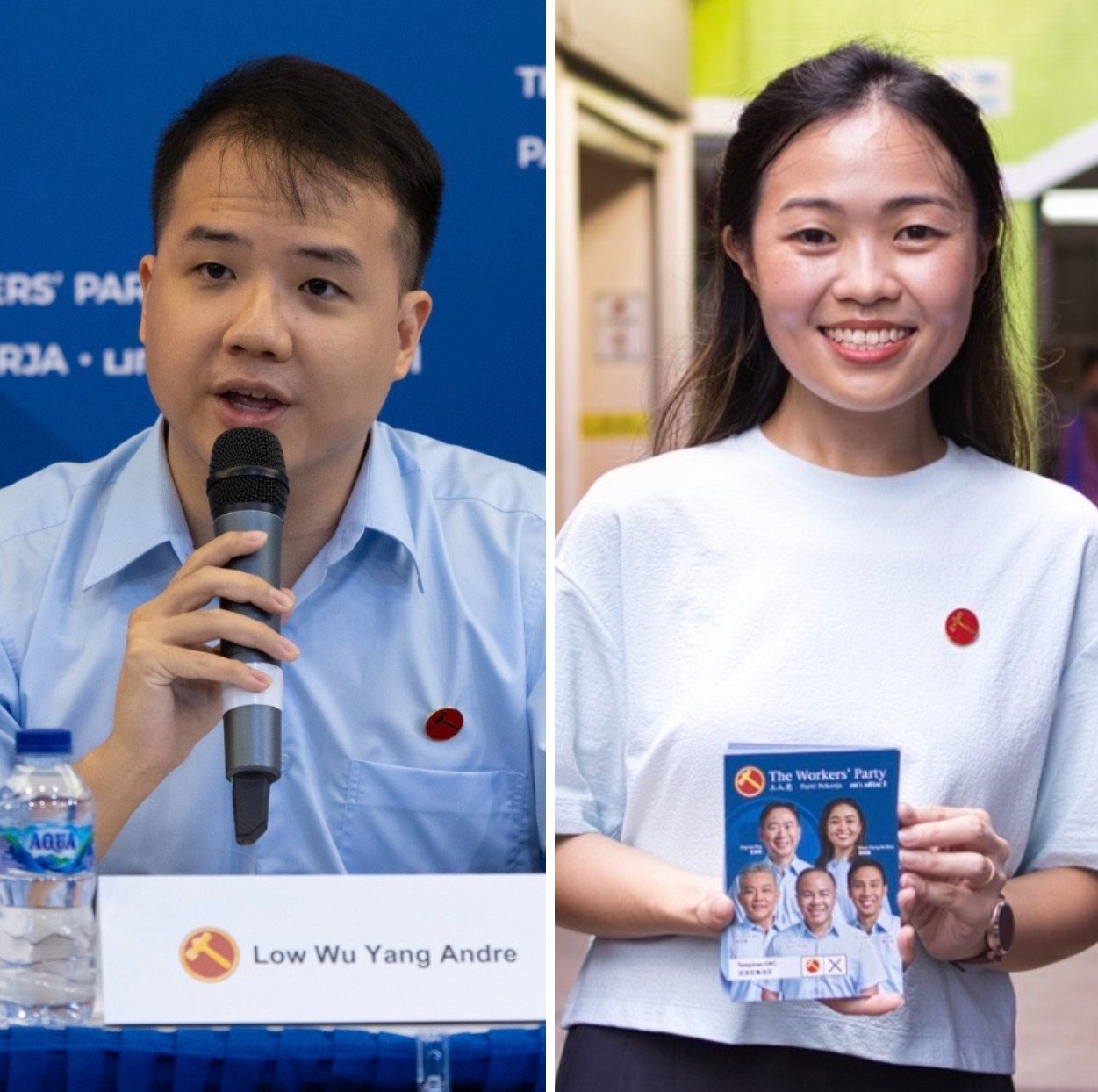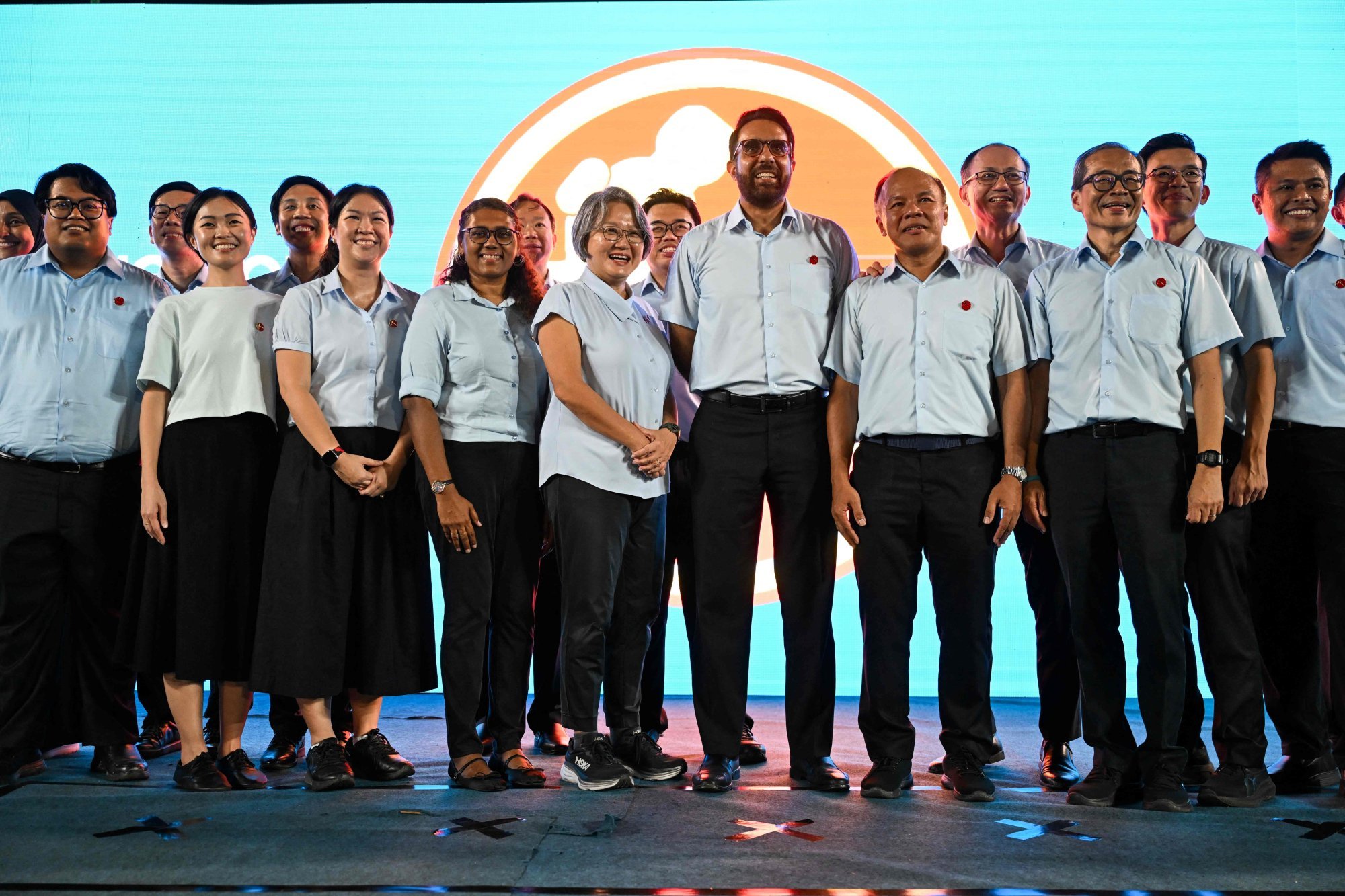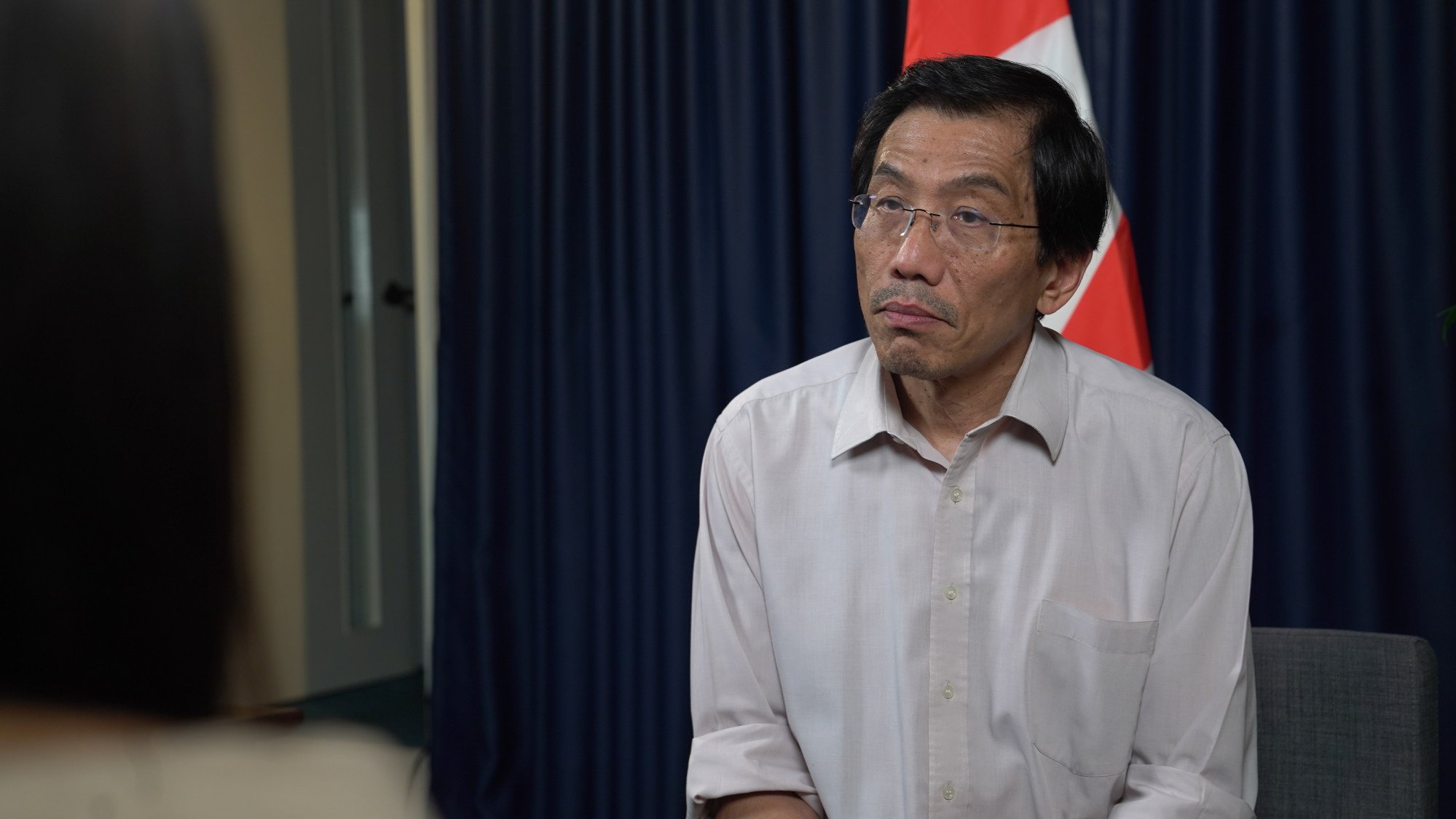Singapore election: Workers’ Party’s Andre Low and Eileen Chong chosen as NCMPs
The posts of Non-Constituency Members of Parliament are given to the “best losers” after every election in Singapore

The Workers’ Party (WP), Singapore’s main opposition party, has announced that its members Andre Low and Eileen Chong will take up the two Non-Constituency Members of Parliament (NCMP) seats given to the “best losers” in an election.
In a statement on Monday after the announcement by the city state’s election authorities, the WP said it remained “steadfast in our mission of working for Singapore”.
“All WP Members of Parliament will carry forward the Workers’ Party’s long-standing mission to represent the interests of all Singaporeans, hold the government to account, and advance reasoned, principled debate in Parliament,” it added.
Chong, who was from the five-member WP team that contested the multi-seat ward of Tampines, will be taking the position instead of teammate and party veteran Faisal Manap, formerly an MP for Aljunied since 2011.
The team lost to the ruling People’s Action Party (PAP) in a rare four-cornered fight, clinching 47.37 per cent of the vote. It was the second-closest margin at the May 3 election.
Low, who contested in the single-seat Jalan Kayu constituency, lost narrowly to the PAP’s Ng Chee Meng, a labour chief and a former cabinet minister. The WP member received the highest percentage of votes among unelected opposition candidates, garnering 48.53 per cent of the vote.
At the height of the election, Low found himself in the thick of controversy when old Telegram messages he had shared with schoolmates leaked overnight on social media, showing him swearing about various issues and individuals, including a resident who had repeatedly called him during his volunteer work with the party.

Ng also found himself at the centre of public scrutiny during the campaign period over his involvement with the blocked sale of home-grown Income Insurance to German insurance giant Allianz.
Last October, the government intervened to stop the proposed acquisition by Allianz of a majority stake in Income, worth S$2.2 billion (US$1.68 billion). News of the deal caused concern about the nature of the acquisition and whether it would impede Income’s ability to continue with its social mission.
Income, which started off as a social enterprise and has had a long-standing objective to provide affordable insurance to Singapore, was corporatised in 2022.
The PAP won 87 out of 97 parliamentary seats, and secured a 4 percentage-point increase from the previous 2020 general election, while the opposition maintained the constitutional minimum of 12 seats, including 10 elected ones.
The resounding victory was widely seen as a vote of confidence in Prime Minister Lawrence Wong’s leadership amid rising costs of living – defying historical precedent of a dip in support during leadership transitions. It was his first general election as prime minister and secretary general of the PAP.
Some opposition parties in the aftermath of their loss earlier told This Week in Asia the redrawing of electoral boundaries and uneven resources, among other factors, posed formidable challenges against them making any headway.

On Sunday, Singapore Democratic Party (SDP) chief Chee Soon Juan called for electoral reforms, including ensuring a minimum three-week campaigning period instead of the current nine-day period, and the establishment of an “independent elections commission”.
The Elections Department, which is responsible for preparing for and managing the conduct of elections, currently operates under the Prime Minister’s Office.
The SDP also launched an online petition titled “Reform Singapore’s Electoral System”, which has since garnered 3,100 signatures since it was published a day ago.
“This has been the feedback we’ve been getting over and over especially [from] the younger voters, who are just coming together to learn about the [election] process,” Chee said at a media conference, according to a report by state-funded broadsheet The Straits Times.
His party lost in all four constituencies it contested in the election. Chee narrowly lost to the WP on becoming an NCMP, after obtaining 46.82 per cent of the vote in the single-seat ward of Sembawang West. It was his best performance ever since his first electoral contest in 1997.